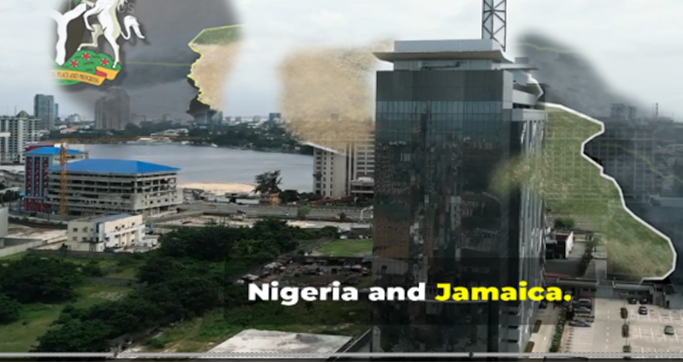Jamaica and Singapore, though worlds apart in geography and culture, offer fascinating insights into how tourism can shape an economy and society. While Jamaica’s economy heavily relies on tourism, contributing nearly 34% of its GDP, Singapore’s tourism sector, though massive in scale, makes up a smaller portion of its GDP—around 4%. Despite this, Singapore attracts far more visitors annually (over 19 million in 2019) compared to Jamaica’s 4.3 million in the same year. This stark contrast highlights the differences in their tourism models and raises important questions about how Jamaica and the wider Caribbean can learn from Singapore’s approach to achieve sustainable growth.
The Caribbean Model: Sun, Sand, and Sea
Jamaica, like much of the Caribbean, has traditionally relied on its natural assets—pristine beaches, tropical climate, and vibrant culture—to attract tourists. However, this model has its limitations:
- Overdependence on Mass Tourism
The focus on all-inclusive resorts and cruise ships has created a system where tourists often remain confined to their hotels, limiting their economic impact on local communities. This model also prioritizes quantity over quality, leading to environmental degradation and cultural commodification. - Economic Vulnerability
With tourism contributing such a large share of GDP, Jamaica is highly vulnerable to external shocks, such as natural disasters, global pandemics, or economic downturns. The COVID-19 pandemic, for instance, devastated the island’s tourism-dependent economy. - Neglect of Local Needs
The emphasis on catering to tourists has often come at the expense of local residents, with restricted access to beaches, rising living costs, and a decline in traditional industries like agriculture.
The Singapore Model: Diversification and Innovation
Singapore, on the other hand, has built a tourism industry that is deeply integrated into its broader economic strategy. Here’s how it differs:
- Diversification Beyond Natural Assets
Unlike Jamaica, Singapore doesn’t rely on natural attractions like beaches or mountains. Instead, it has created a tourism ecosystem centered on innovation, infrastructure, and cultural diversity. From world-class airports and hotels to iconic landmarks like Marina Bay Sands and Gardens by the Bay, Singapore has positioned itself as a global hub for business, leisure, and transit tourism. - High-Value, Low-Impact Tourism
Singapore focuses on attracting high-spending tourists who contribute significantly to the economy without overburdening resources. The city-state’s efficient public transportation, strict environmental regulations, and smart urban planning ensure that tourism growth doesn’t come at the expense of sustainability. - Integration with Local Life
Tourism in Singapore is designed to complement, not overshadow, the lives of residents. Public spaces, cultural festivals, and culinary experiences are shared by both locals and visitors, creating a sense of inclusivity rather than division. - Economic Resilience
By keeping tourism as a smaller but highly efficient part of its economy, Singapore has built resilience against external shocks. Its diversified economy, which includes finance, technology, and manufacturing, ensures that the country isn’t overly reliant on any single sector.
Lessons for Jamaica and the Caribbean
- Diversify the Tourism Offerings
Jamaica can learn from Singapore’s success by expanding beyond its traditional sun-and-sand model. Emphasizing cultural tourism, adventure tourism, and eco-tourism can attract a wider range of visitors while reducing pressure on coastal areas. - Invest in Infrastructure and Innovation
Singapore’s world-class infrastructure is a key driver of its tourism success. Jamaica could benefit from similar investments in transportation, technology, and sustainable urban planning to enhance the visitor experience and support local communities. - Promote High-Value Tourism
Shifting focus from mass tourism to high-value tourism can help Jamaica maximize revenue while minimizing environmental and social costs. This could include luxury eco-resorts, niche cultural experiences, and business tourism. - Strengthen Economic Diversification
Reducing reliance on tourism by developing other sectors, such as agriculture, renewable energy, and creative industries, can make Jamaica’s economy more resilient. Singapore’s example shows that a strong, diversified economy can support a thriving tourism sector without becoming dependent on it. - Empower Local Communities
Ensuring that tourism benefits local residents is crucial. Community-based tourism initiatives, fair wages, and policies that prioritize local needs can help bridge the gap between tourists and residents.
A Path Forward
While Jamaica and Singapore operate in vastly different contexts, the principles of diversification, innovation, and sustainability are universal. By reimagining its tourism model, Jamaica can create a more resilient and inclusive industry that not only attracts visitors but also enriches the lives of its people.
The Caribbean doesn’t need to replicate Singapore’s model entirely, but it can draw inspiration from its success. By balancing economic growth with environmental stewardship and cultural preservation, Jamaica and its neighbors can build a tourism industry that truly works for everyone.
-
-
Why Jamaica Is Seen as a Black Nation — Yet Wealth and Power Often Tell a Different Story
Jamaica is globally recognized as a Black country, defined by African heritage, culture, and population. Yet when wealth, corporate ownership, and economic power are examined closely, a striking imbalance emerges. Despite Black Jamaicans forming the overwhelming majority, much of the nation’s wealth historically resides within a small number of families rooted in European, Middle Eastern, and mixed-heritage lineages.
-
-
Montego Bay Ascendant: Swallowtail Tower Tops Out, Cementing City’s Role as Jamaica’s New Development Leader
Montego Bay, long established as the Caribbean’s premier tourism capital, is now boldly stepping forward to claim its title as a leader in integrated, high-end residential development. The city’s skyline has been irreversibly changed with the Official Topping-Out Ceremony of the Swallowtail Tower, the first of the four luxury residential towers at The Pinnacle. Reaching its final height of 28 stories, the tower now stands as the tallest building in Jamaica. Notably, even during its construction, the structure and its installed systems demonstrated absolute resilience against the fury of Hurricane Melissa, standing tall and virtually unscathed against the Category 5 winds. This monumental achievement not only solidifies Montego Bay’s structural progress but also signals its intent to become a primary hub for luxury living and diversified economic activity, challenging Kingston’s traditional dominance in non-tourism-centric development.
-
Jimmy Cliff: Reggae Trailblazer and Global Icon Passes Away at 81
Reggae legend Jimmy Cliff—the golden voice behind “The Harder They Come” and “You Can Get It If You Really Want”—has died at age 81. His passing marks the end of an era for Jamaican music and global culture, leaving behind a legacy that shaped reggae’s rise and influenced generations of artists worldwide.
-
A Beacon of Truth’: PNP Pays Solemn Tribute to Late Reggae Icon Jimmy Cliff
Kingston, Jamaica — The People’s National Party (PNP) has issued a heartfelt statement joining the nation and the international arts community in grieving the loss of reggae pioneer Jimmy Cliff. The 81-year-old music legend passed away on Monday; his family confirmed the cause of death was pneumonia following a seizure.
Read more about how the Caribbean can adopt innovative strategies to transform its tourism sector and achieve sustainable growth.






come and join me at moomoo!Sign up via my referral link now and claim 8.1% APY and up to 15 free stocks!
account when you invite 3 or more friends to sign
One Comment